Sussex In Reach Digital Team

Newsletter - September 2023



Digital Conference - 3rd Octob
We are thrilled to present the eagerly awaited conference,
"What the Digital Future Holds for Social Care Providers?"
An event dedicated to revolutionising the social care industry through cutting-edge technology and innovative solutions.
Key Speaker: Amanda Partington Todd, Deputy Director for Adult Social Care at the CQC, will share invaluable insights into the rapidly evolving landscape of social care and the role of technology in shaping its future.
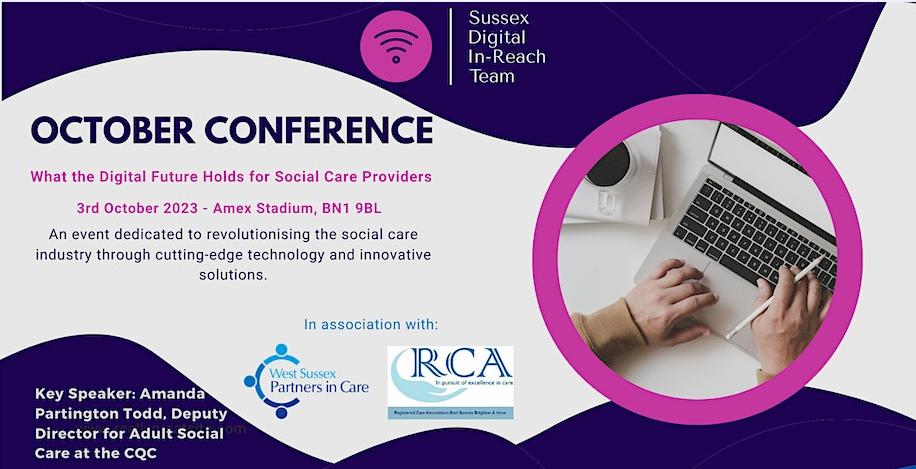
Watch this video to find out more: https://youtu.be/video
Date: 3rd October 2023
Location : Amex Stadium, BN1 9BL
Time : 09:30 - 15.00
To book your tickets please visit:
Contents
● What the Digital Future hold for Social Care Providers

● DSCR Funding

● Going Digital?

● Access Group
● Digitising Social Care - Transforming lives through technology
● CQC - Digital Social Care Record
● CQC - Single Assessment Framework
● Cyber Attacks - Stay Safe!
● Keep I.T. Confidential
● How to recover and infected device
● Action Fraud
● Skills for Care
● CQC - Provider portal & new regulatory approach
● Where there’s a digital skill, there’s a way…
● Barclays Digital Upskilling
● Barclays Digital Champion Programme
● Free Training & Events - September/October
● RESPECT - Awareness
● NHS - Keep on moving!
● MILE Newsletter
● Digital Social Care - Events and training
● Digital Social Care - Digital Skills Training Database
● Contacts

DSCR - 2023/24 Funding


The 2023/24 DSCR funding process is and application forms are available on

DSCR (Digital Social Care Record) Grant
Grant Amount: £1650 for each Sussex-based care setting registered with CQC.
For settings with up to 24 beds, a single grant of £1650 is provided. For settings with 25 or more beds, the grant amount is calculated at £70 per bed.
Eligibility Criteria:
● CQC registered, Sussex based care providers .
● Procuring a digital social care record system from the Assured Supplier List

● The grant is available for care settings between April 2023 & March 2024.
The specific choice of the system from the assured list, is determined by the individual care home organisation and to best meet their requirements. Completion of a Data Protection Impact Assessment along with completion of your DSPT will be encouraged for all applicants.
To register your interest, please contact us:
Sarah McNally sarah@sussexdigitalteam.co.uk
Claire Badzek claire@sussexdigitalteam.co.uk
Contact us for help with your DSPT if required. For further information & to register interest: esht ourcareconnected@nhs net
Going Digital?
Looking to make the move to d
Check out the Assured Supplier List for all suppliers who meet the funding

∎ Access Care & Clinical

∎ Access Care Planning

∎ Birdie
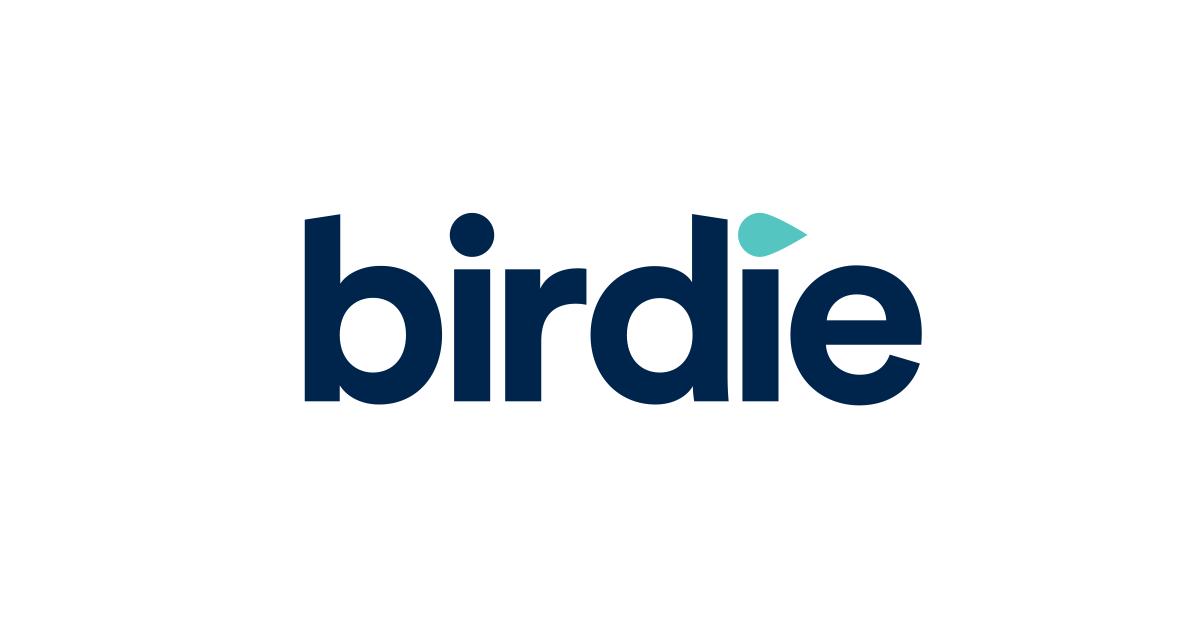
∎ Carebeans Care Software


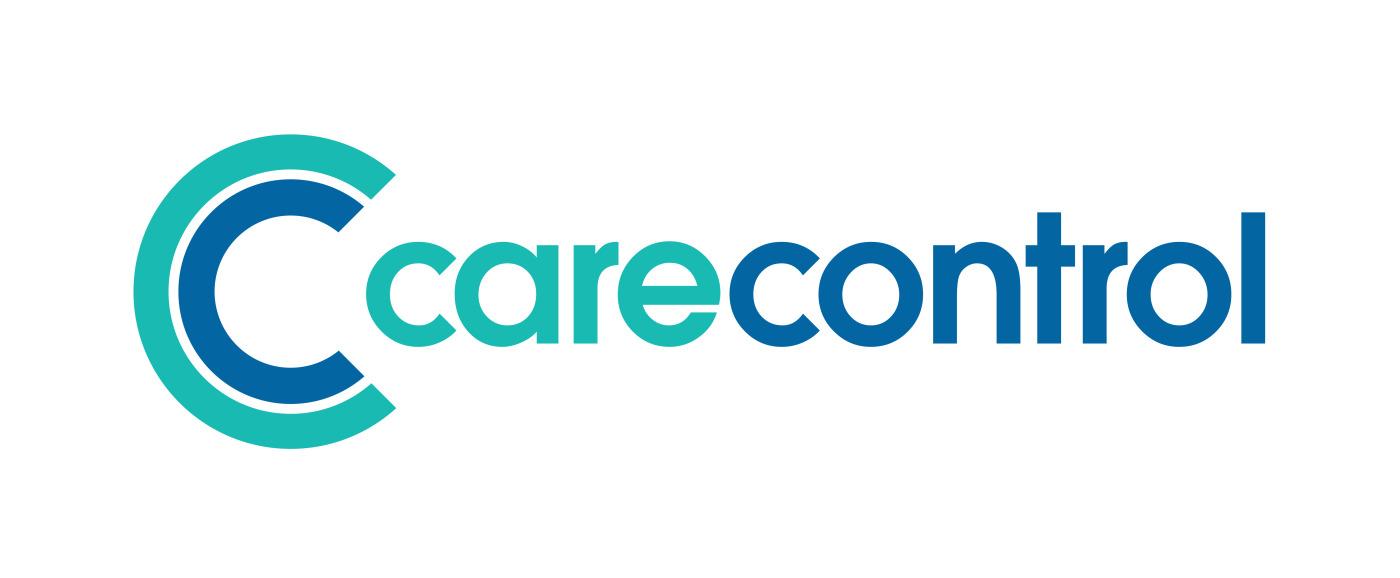

∎ Careberry

∎ Care Control Systems
∎ CareVision
∎ CareLineLive

∎ Cura Systems

∎ Fusion eCare Solutions

∎ iplanit by Aspirico
∎ KareInn Ltd

∎ Log my Care
∎ Nourish

∎ OneTouch
∎ PASS by everyLIFE

∎ Person Centred Software (PCS)


∎ Qwikify Digital Care



∎ Sekoia

Technology in Care Homes –

9 Digital Innovations in Care Hom
You Need To Know About
Technology in care homes is an enormous topic, with more technology available than ever, all vying for your attention and your budget.
Innovation in care homes has been a bit of a slow starter, but is now increasing in pace all the time.
As a care home operator you might sometimes feel a bit overwhelmed at all the different options. It can be tough to figure out which piece of technology will help you with that challenge, what kind of impact that technology will make, and how big that impact will be. In short, which piece of care home technology is right for you, right now?
Examples of digital innovation in care homes
1. Virtual Reality in Care Homes
2. Acoustic Monitoring (and how its evolving)
3. Interactive Me

4. Wearable technology
5. Circadian Lighting/Bio

6. Auditing, compliance, governance software

7. Artificial Intelligence (AI) and Machine Learning in Care Homes

8. Robotics
9. Managing Medicines View our Care Home Software
Access Group
a Demo
Book
Digitising Social Care


Transforming lives through technology
Aligned with the 2021 government white paper "People at the Heart of Care," the digitizing social care program propels sector-wide digitisation to enhance care quality, safety, and personalisation A primary focus is fostering adoption of Digital Social Care Record solutions (DSCR) in adult social care
What's a DSCR? A DSCR (also known as an electronic care plan) digitises care information and recipient details, replacing traditional paper records They have the potential to transform the way in which care is provided Moving care plans from paper to electronic formats makes it easier for care workers and managers to get the information they need to respond more quickly to people’s needs, minimise risks to people’s safety and reduce time wasted on administration and reporting.
This transition also paves the way for integrated remote care tools, promoting tailored care and comprehensive understanding of individuals' needs. Already, many providers access GP records via DSCRs, with many more to come.
Guiding Digital Transformation Recognising DSCR's pivotal role, the Care Quality Commission (CQC) published guidance in May this year, emphasizing digital records' value in integrated, effective services.

CQC's guidance highlights digital care's benefits, including efficient information capture, rapid response to needs, secure data sharing, and risk reduction.
To learn more and discover how you may be eligible for a grant to help implement DSCR., visit us on Sussex Digital In Reach Team or email Claire@sussexdigitalteam.co.uk


echnology se grates into care and support vices, its potential for sformation becomes clear: bling happier, more fulfilled s within homes and mmunities.
CQC - Digital Social Care Records
DSCR enable information to be shared securely and in real-time, with authorised individuals across the health and care sector. This helps to reduce risks and supports a more personalised care approach.

NHS Transformation Directorate's work, in partnership with Digital Social Care, aims to support the Department of Health and Social Care's white paper (People at the Heart of Care) target of ensuring 80% of our registered care providers use electronic care planning solutions, by March 2024.
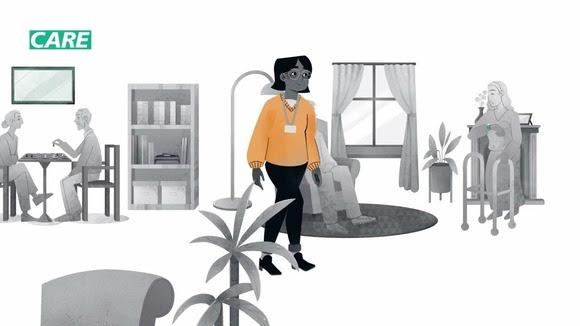
This new video offers a useful overview of the benefits of using DSCR.

Watch here
 A still from the Digital Social Care Records (DSCR) YouTube video
A still from the Digital Social Care Records (DSCR) YouTube video
CQC - Single Assessment Framework
CQC Changes to Inspection System
With the CQC's recent announcement regarding the upcoming rollout of the single assess commencing in late autumn, it is imperative for social care providers to make preparation framework is designed to prioritise the aspects that hold significance to individuals utilis services, as well as their families.

At the core of this approach lies a comprehensive comprehension of the five fundamental questions – safety, effectiveness, compassion, responsiveness, and leadership – alongside the introduction of novel quality statements. These quality statements, also referred to as 'we' statements, outline the benchmarks for exemplary care and will be closely linked with the corresponding regulations
To ensure that you and your team grasp this novel methodology and can substantiate to the CQC your commitment to furnishing top-notch, person-centred care, we invite you to participate in our forthcoming presentation on the Single Assessment Framework.
Single Assessment Framework
Wednesday 20th Sept: 2.30pm - 3.30pm
https://www eventbrite co uk/e/625205425257
The event will cover changes that CQC is implementing to their system of inspection and regulation
CQC is developing a new approach to regulation called a single assessment framework. This applies to providers, local authorities and integrated care systems
They will continue to use:
● five key questions (safe, effective, caring, responsive and well-led)
● four-point ratings scale (outstanding, good, requires improvement and inadequate)
Under each key question there are a set of topic areas and quality statements The statements describe what good care looks like and will link to the regulations.
What will be different?


● Gathering evidence: CQC gather evidence to support their judgements in a variety of ways and at different times –not just through on-site inspections. This means on-site inspections will support this activity, rather than being our primary way to collect evidence
● Frequency of assessments: They will no longer use a service's rating as the main driver when deciding when we next need to assess. Evidence we collect or information we receive at any time can trigger an assessment.
● Assessing quality: Judgements about quality will be made more regularly, instead of only after an inspection The assessments will be more structured and transparent, using evidence categories as part of the assessment framework and giving a score for what they find hoping to make their decisions about ratings clearer and easier to understand.
The process will continue to be changed, refined and improved and our presentation will reflect this.
If you want to hear the latest information on how the single assessment framework will work and
Cyber Attacks - Stay Safe!
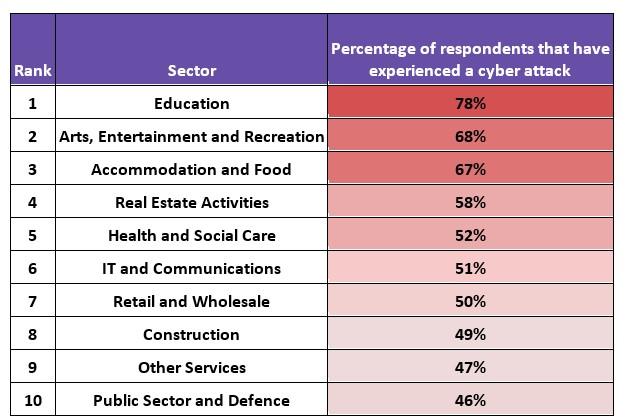
More than 50% of UK health and social care businesses have experienced cyber Indusface This sector is targeted more than the UK business average It ranks fi cybercrime Indusface's founder emphasised the need for cybersecurity investme sectors, as cyber attacks can lead to data loss, reputation damage, and financial methods include email hacking, phishing, bot attacks, and exploiting vulnerabilities like SQL injection He suggested employee training, regular security assessments, and robust perimeter defences to counter these threats SMEs face challenges due to outdated security software and resource shortages

We provide personalised cyber security support to help you mitigate risks and enhance your protection against threats Our services are entirely free due to our available funding If you're looking to strengthen your defences and minimise vulnerabilities, we're here to assist


Additionally, we're excited to invite you to our upcoming Digital Conference on October 3rd in Brighton.

To help you with your cyber security, the event will feature a short presentation by Chris White from the National Cyber Security Centre. This is a unique opportunity to gain valuable insights and engage directly with an expert in the field. You'll have the chance to ask questions and learn more about safeguarding your business. We look forward to your participation and the opportunity to help you enhance your cyber security posture.

htps://www carehomeprofessional com/over-half-of-health-and-social-care-businesses-hit-by-cyber-attacks
Keep I.T. Confidential
From online to offline, Keep I.T. Confidential
Health and care organisations are responsible for their own cyber security, and all staff have a role to play. Falling victim to cyber and security threats has a direct impact on our patients.

There are simple steps we can take to protect ourselves from cyber threats and keep unauthorised people away from sensitive or confidential information such as patient data, health care records or details of our IT systems.
Keep I.T. Confidential aims to help us understand more about these cyber security threats and know what steps we can take to mitigate risk and protect our patients and their data.
These cyber security threats have been identified as a risk to the NHS and care organisations.


Download our campaign materials to run your own Keep I.T. Confidential campaign. Download the campaign materials
From online to offline, Keep I.T. Confidential - NHS Digital


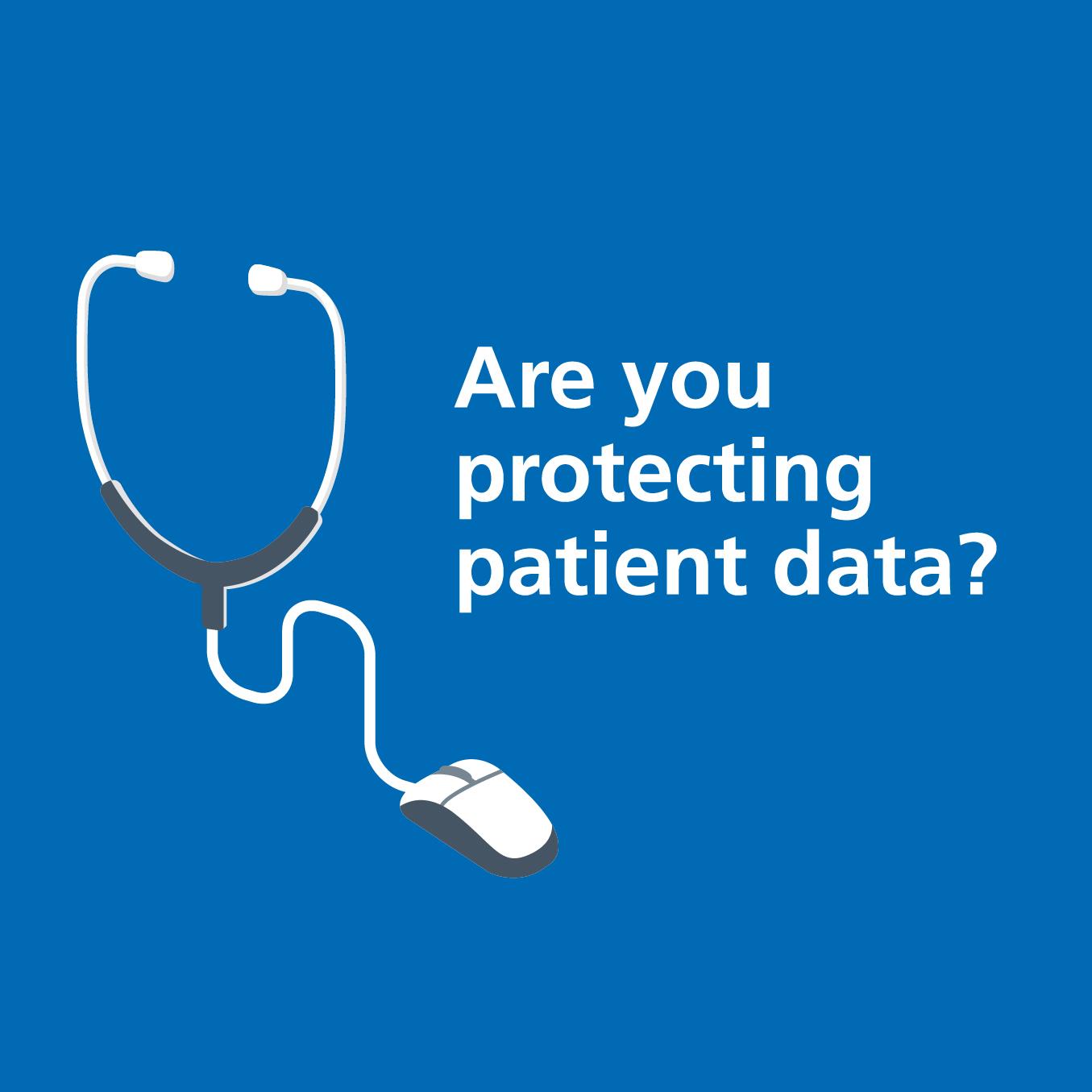
ansomware
nsomware is one of the biggest cyber threats facing the U ow our top tips to help protect your organisation and the N
e aware
Sharing NHS information in public spaces puts patient data at risk. Criminals know this hey are watching and listening.
a

breaches can lead to fines, disruption to services and reputational damage. Make sure you understand and follow the latest guidance around data sharing
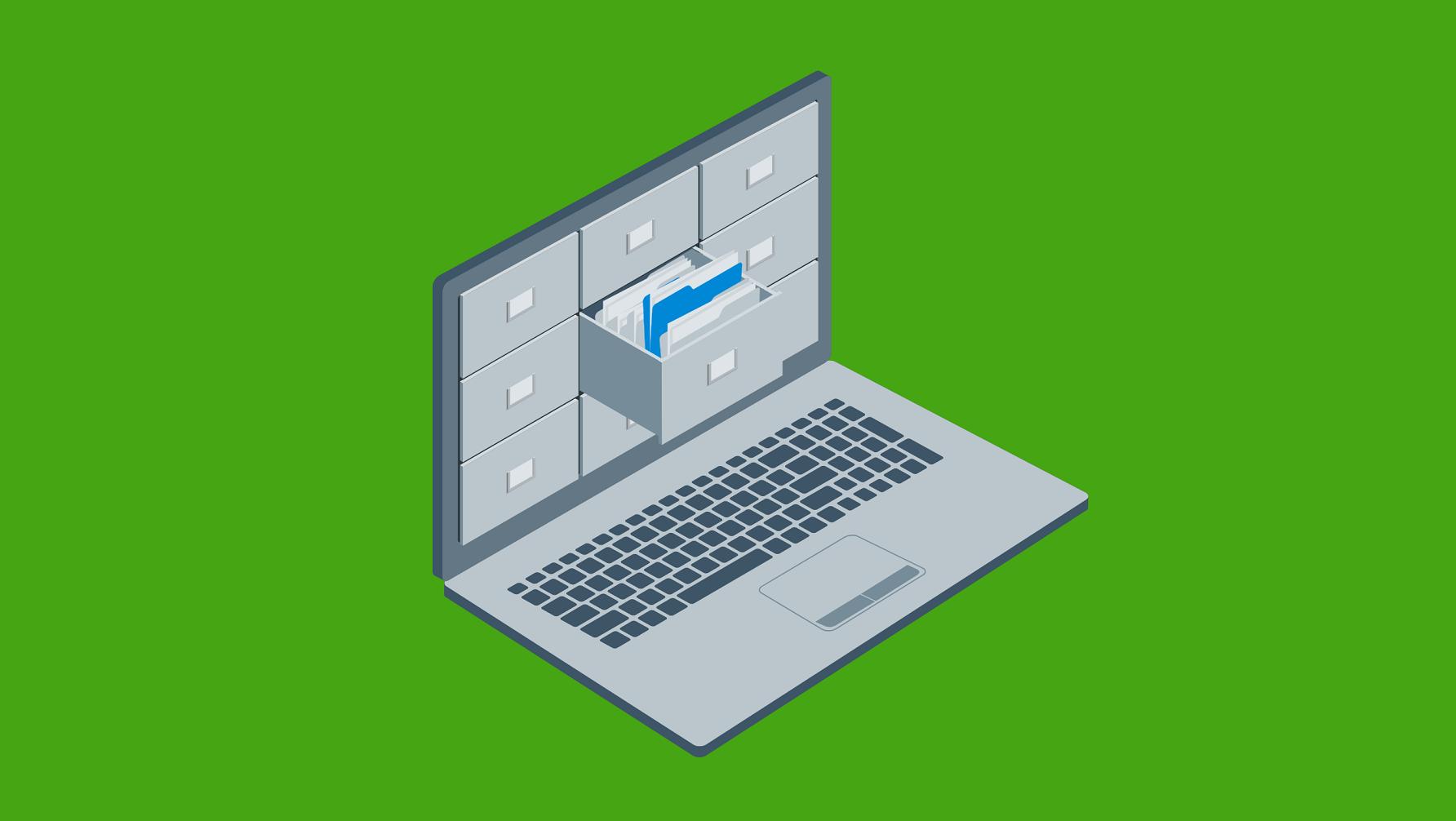




eak passwords
e easiest way to protect yourself from cyber threats is by having a strong password.
hishing
Phishing is when hackers and criminals send unsolicited emails that contain hments or links to try and trick people into providing access to information
lgating
ating is when unauthorised people gain entry to a building by following a staff member through physical security facilities, such as doors, barriers and gates, to avoid d tection.
nlocked screens
ocked screens are an open invitation to patient data theft. Keep your screens and ices locked when they’re not in use

cial engineering
al engineering involves criminals using tricks or deception to manipulate people giving access to information such as patient data, health care records or details of stems.
essy files
organised filing leads to costly mistakes that can jeopardise patient confidentiality


d legal compliance Keep files organised up to date and secure

nd infected device Advice for those con a
device has been inf
I one has been infected with a virus or some other form of malware, follow t ection and restore your device
1. Confirm your device is infected
● You may already know for sure because your antivirus product is telling you it has found an infection, or your device is showing ransomware asking you to pay money
● If you suspect an infection but aren't sure The easiest way to confirm an infection on a PC or laptop is to run an antivirus scan and see if it detects anything
● If you don't have antivirus, signs of infection include:
● Your device is running slowly, rebooting by itself, frequently closes programs or apps you are using, or opens those you are not

● You have pop-up boxes from programs/apps you don't recognise, asking you to do unexpected things
● Someone you know tells you that they've received unexpected emails from you, advertising unlikely products, or perhaps asking for money
● Some apps on mobile devices try to check if your device has been 'rooted' or 'jailbroken'. These aren't a guarantee that your device has been hacked, but if you haven't actively done either of these to your device then it can be a good indication.
● If you have received a phone call telling you your device is infected and you need their help to clear it up This is a common scam, the caller often claiming to be from a trusted company such as Microsoft, or your internet service provider Hang up immediately and report the call to Action Fraud If such a caller has persuaded you to pay them money, report the call to Action Fraud and your bank or credit card provider
2. Try and fix the infection
If you are on a phone or tablet:
● These can't usually be fixed by an antivirus product in the same way as PCs and laptops The safest solution is to do a factory reset - you can usually find this option in the Settings The exact name of the feature will depend on which type of device you have The NCSC has published advice where you can learn more about erasing the data on your device
● If this doesn't fix the problem, you'll need expert help.
If you are using a PC or laptop:
● Update your device and programs
● Open your antivirus product and run a scan, then follow its advice
● If your AV can’t clean your device up – you’ll have to wipe it entirely and re-install everything, starting with your operating system You may need to get expert help to do this
● If you cannot download and install an antivirus product because your web browser (eg Chrome, Edge, Firefox) is infected, you will probably need to get expert help.
● Restore your backed-up data from the 'last known' good backup. You will lose any data that wasn't backed up, but trying to rescue data while your device is still infected runs the risk of carrying the infection through after wiping and reinstalling
3. After you've fixed the infection
Follow our advice for setting up your devices securely and keeping them safe
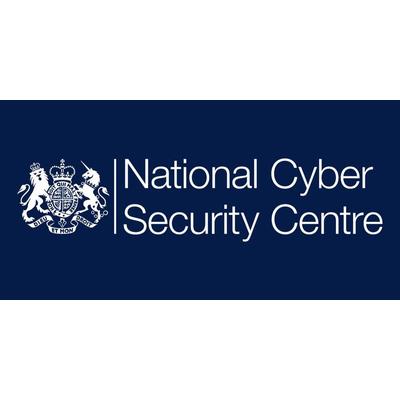

● Keep your device and programs/apps up to date
● Back up your data
● Check your device is encrypted

H
Action Fraud
Action Fraud has received 31 reports since June 2023 relating to remote access scams targeting businesses. Victims have reported losses totalling over £3.8M.

Scammers contact businesses claiming to be from their bank or from a financial services vendor used by their business The goal of the scammer is to get victims to log in to their online banking account whilst the scammer has remote access to their computer The scammer convinces the victim to install software that enables remote access, claiming it is required to install an important update The victim is instructed to log in to their online banking account, and then the remote access software is used to blur the screen whilst the scammer makes fraudulent transactions from the victim’s account. The victim is asked to read out one-time verification codes that the scammer claims they have sent to the victim’s mobile.
The codes are from the victim’s bank, which if shared will allow the scammer to transfer money out of the victim’s bank account
How to protect your business from remote access scams
● Your bank will never ask you to grant them remote access to your computer or smartphone.
● Never install remote access software on your device as a result of an unsolicited call, browser pop up, or text message
● One-time verification codes sent to you by your bank should never be shared with anyone

● If you receive a suspicious call claiming to be from your bank, hang up and call your bank using the number on the back of your bank card, or from their official website or app.
If you believe your laptop, PC, tablet or phone has been infected with a virus or malware, follow the National Cyber Security Centre’s guidance as above on ‘How to recover an infected device’
If your business has fallen victim to fraud or cyber crime, report it to Action Fraud online at www.actionfraud.police.uk or by calling 0300 123 2040.

If your business experiences a live cyber attack (in progress), call the live cyber reporting service for businesses on 0300 123 2040 (24 hour service) immediately


Skills for Care
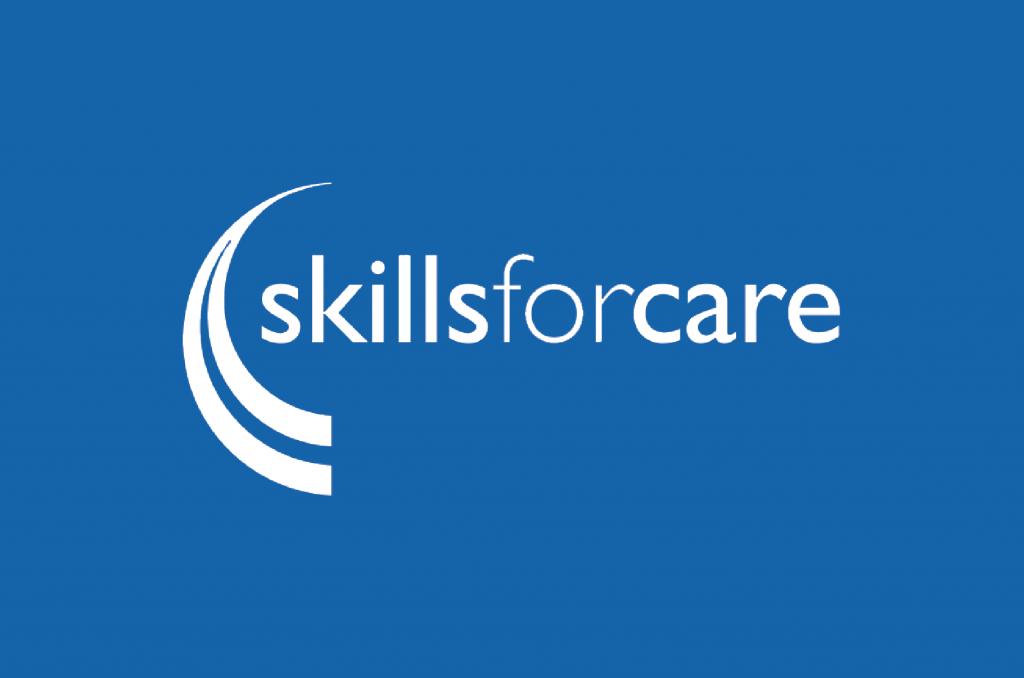
ew Single Assessment Fram ng at ways in which providers they carry out their inspecti toring of services. To suppor for care have developed quite a lot of resources at providers can evidence how they support their
Some of those resources are: Wellbeing (skillsforcare org uk)
The wellbeing resources include
● Digital wellbeing information cards - variety of information, helplines and where to find support in one handy place for a snapshot of wellbeing support. The card can be viewed easily on a mobile phone, tablet or desktop or shared as a ‘PDF’ with others.


● Support for managers –


○ They have an advice line, Facebook Group, Registered Manager networks, and WhatsApp group to support the wellbeing of registered managers.
○ Registered manager webinars - The webinars cover different wellbeing topics for managers and their team such as leading for wellbeing and keeping your team motivated Bite-size resources accompany webinars such as wellbeing guide for managers
○ Wellbeing for registered managers - a bite size practical guide - bite size guide is based on the New Economics Foundation Five Ways to Wellbeing: Connect; Be active; Take notice; Keep learning; Give. Written with registered managers in mind who can use it to generate ideas around promoting positive wellbeing and implement it into their day-to-day lives
● Wellbeing resource finder - national resources to support workplace and personal wellbeing, grouped into categories by topic, audience and type of resource with an easy filter system
● Building resilience - Building resilience can help adult social care staff cope better under pressure and continue to deliver high quality care and support.
● Supporting a diverse workforce - webinars and read our blogs to hear about experiences and the importance of supporting the mental wellbeing of people from ethnic minority communities, as well as what organisations should and can do to help their staff.
● Support for individual employers and PAs - resources designed for individual employers and personal assistants to support wellbeing. Including wellbeing videos to hear individual employers talk about their experiences and what's helped their wellbeing
CQC - Provider portal & new regulatory app
Provider portal and new regulatory

Care Quality Commission (CQC) is inviting the first group of health and social care providers to log onto a new provider portal.


The plan is to roll out the new portal to all providers in phases from September
Each provider will be invited onto the portal with their login details and guidance on how to use it.
In November, CQC will start to use its new assessment framework.
This will be rolled out regionally, starting with providers in the South of England (including services registered in Sussex). Any assessments from November onwards for providers in the South will be carried out using the new assessment framework
CQC will still schedule assessments by considering the level of risk, so not all providers will need to have an immediate assessment.
To get ready, CQC suggests:
● Making sure that contact details for your organisation are up to date

● Reading our new approach to assessment to help prepare your organisation for the changes in the way we regulate.
More information:
Transformation plan and new approach - summer update

Where there’s a digital skill, there’s a w
 Jane Brightman, Posted on: 25 July 2023Categories: Care and support, Digital skills and technologies, Guidance, Information sharing, Workforce
Jane Brightman, Posted on: 25 July 2023Categories: Care and support, Digital skills and technologies, Guidance, Information sharing, Workforce

Confidence boost - When technology is embedded seamlessly into care and be transformative: helping people to live happy, fulfilled lives in their homes and c
But technology on its own will not be successfully adopted without equipping adu with the confidence, skills and support to embed digital ways of working. We hear often that training on digital skills is on the list of priorities but it’s hard to know where to start.
In 2021, we commissioned Ipsos Mori, the Institute of Public Care and Skills for Care to carry out a review identifying the level of digital confidence and digital skills in the sector. The review findings showed a consensus among registered managers and other groups that there are gaps in the digital skills of the workforce. In April, the Government published Next Steps, which provided an update on the commitment set out in People at the Heart of Care, to develop a comprehensive digital learning offer for the social care sector We have been developing a number of approaches which deliver on this commitment.
We recently announced our updated digital skills framework This outlines the digital skills care professionals need. It also gives access to a training database to help employers and staff plan and access digital learning to build relevant, transferable digital skills
l i ' good - We’ll soon be launching new e-learning
l 5 qualification in adult social care digital leadership ed website which will host training and guidance on option. All of this will complement the wider support e adult social care workforce, so that digital skills are ore training and support career development
de some big steps forward to open what were alth-focused learning programmes for social care are four Topol Digital Fellows from adult social care essfully accepted onto the programme. Plus we are y with the NHS Leadership Academy to open up unities to the sector, a great example being the new Systems Leadership; collaborating for health and care programme, which is free
Additionally, we’re working with the Local Government Association to develop ‘digital confidence and capability’ for the local authority workforce and conduct some exploration into digital, data and technology (DDaT) professionals across adult social care, which will help us scope what is currently happening and where support might be needed in the future.
Now more than ever before, digital skills in the adult social care sector are vital and the support is there at your fingertips, please do take advantage.


it l
Wh th ’ di
kill th ’ S i l (bl k)
Barclays Digital Upskilling Programme


Last opportunity to book for This programme has been designe care providers based on your feedback
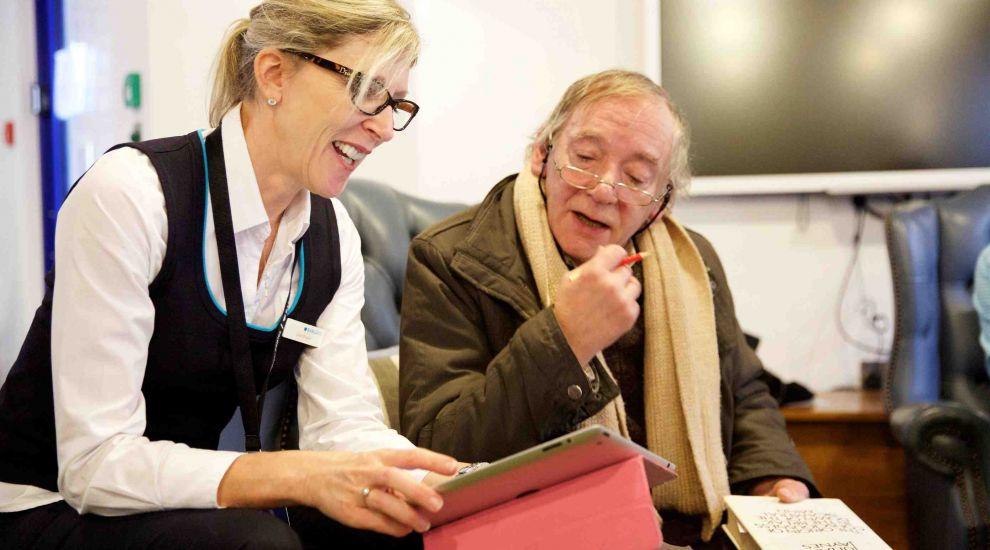

We are working hard to secure further training sessions, but in the meantime, please sign up to the Barclays Digital Champions Programme as below, which offers valuable learning resources.
Digital Office Skills - MS Word

Tuesday 19th Sept: 2.30pm - 3.30pm
https://www.eventbrite.co.uk/e/585385633187
Getting started with Microsoft Word: create a new document; Add to and amend your document; Review your document; Save your document.


Digital Office Skills - MS Word - INTERMEDIATE LEVEL

Tuesday 17th Oct: 2.30pm - 3.30pm
https://www.eventbrite.co.uk/e/585328863387
If you are already confident using MS Word, join this session to learn about some of the advanced features, hints and tips to help you make your documents look even more a must for any manager/administrator
Barclays Digital Champion Programme Digital Champions Progra

Having digital skills – even just basic ones can make a big difference in both your personal and work life.

Working collaboratively with Barclays, we are able to offer you this amazing, free Digital Champion programme. The programme was designed for anyone who wants to support the people around them to develop these essential digital skills You will be teaching essential digital skills to help people become mo avoid becoming digitally excluded and isolated. T programme uses virtual sessions alongside onlin modules on Digital Wings to create an environme Champions to develop their digital skills ready to supporting people around them. You don’t need t expert to become a Digital Champion but you do passion for helping others
How does it work? To become a Digital Champio three 90 minute virtual sessions hosted by Barcla Eagles. You’ll also need to complete some specially selected online learning modules in Digital Wings to help boost your knowledge and give you the skills you need to share with others
The programme will take around six weeks to complete with around 90 minutes of learning each week Following this, Digital Champions will have a learning space to revisit for new learning, resources and more support if needed.

Here’s what we’ll cover: Virtual sessions: Becoming a Digital Champion, digital basics and fraud and scams Online courses: Communicating, transacting and being safe and legal online.
More information about the programme can be found here: https://digital wings uk barclays/digital-champions

F ll h b l d:


Getting started!
Follow the steps below to get started:
1 - Register - When you register to become a Digital Champion, you’ll join a cohort of other Digital Champion trainees. You’ll stay in this group throughout the programme, and you’ll have to attend each session to complete the programme and become a Digital Champion.
2 - Complete the learning - In addition to attending the virtual sessions, you’ll need to complete three specially selected Digital Wings modules which cover all the topics you’ll be expected to start sharing in your Digital Champion role. In each session and module, we'll give you some ideas on how you can use the learning to help others.
3 - Tell us how you’re doing - Once your learning is complete Barclays team will ask you to share how you’re doing after 30, 60 and 90 days so keep a note of how many people you’re helping. This could be by sharing Digital Wings or showing people how to do something digitally for the first time. You will also have the opportunity to let Barclays know if you need any more help.
1 If you haven’t used our learning platform before, sign up to Digital Wings here and use the code SDRT in the ‘Company Code’ box (this code will help us identify you as a Digital Champion and we can make sure the right people are aware of the impact you’re having). If you have registered for Digital Wings before go to step 2.

2. If you’re an existing Digital Wings user or have just completed step 1 go to the Digital Champions page, read the info and register using the ‘Already using Digital Wings’ option (don’t forget to add ‘SDRT’ when it asks if you’re a Digital Champion from an organisation)
3. Within a couple of days, we’ll send your welcome email with next steps and how to complete your training and book your sessions (there are a range of days and time available)

To find out more, contact Nada:
Nada Wakeford nada@westsussexpartnersincare.org

Free Training & Events - Sept/Oct
Single Assessment Framework
Wednesday 20th Sept: 2.30pm - 3.30pm - https://www.eventbrite.co.uk/e/62520
Changes that CQC is implementing to their system of inspection and regulation
CQC is developing a new approach to regulation called a single assessment fram providers, local authorities and integrated care systems

They will continue to use:
● five key questions (safe, effective, caring, responsive and well-led)
● four-point ratings scale (outstanding, good, requires improvement and inadequate).
Under each key question there are a set of topic areas and quality statements. The statements describe what good care looks like and will link to the regulations.
What will be different?


● Gathering evidence: CQC gather evidence to support their judgements in a variety of ways and at different times – not just through on-site inspections This means on-site inspections will support this activity, rather than being our primary way to collect evidence.
● Frequency of assessments: They will no longer use a service's rating as the main driver when deciding when we next need to assess Evidence we collect or information we receive at any time can trigger an assessment.
● Assessing quality: Judgements about quality will be made more regularly, instead of only after an inspection The assessments will be more structured and transparent, using evidence categories as part of the assessment framework and giving a score for what they find. hoping to make their decisions about ratings clearer and easier to understand.
The process will continue to be changed, refined and improved and our presentation will reflect this. If you want to hear the latest information on how the single assessment framework will work and what you need to do to prepare, this webinar is a MUST
The Caldicott Guardian - Their role and responsibilities in your setting
Tuesday 26th Sept: 2.30pm - 3.30pm - https://www eventbrite co uk/695194755227
The Appointment and Role of the Caldicott Guardian. Caldicott Guardians have been a requirement for public bodies exercising functions that relate to the health service, adult social care or adult carer support in England only, and that process confidential information about patients or service users Whilst it has been optional for other services to appoint them this is due to change. The Caldicott Principles have been applicable to social care and the processing of data for some time but not widely understood
This session is about the appointment of Caldicott Guardians, their role, responsibilities, competencies, knowledge, training, and continuous professional development
The main purpose of this session is to:
● Describe which organisations should appoint a Caldicott Guardian
● Provide guidance on how to appoint them.
● Describe the way the role should be supported by organisations.
● Describe the role and responsibilities of a Caldicott Guardian
Free Training & Events continued
Complete your DSPT to ‘Standards Met’ - What’s new for 23/24?

Thursday 28th Sept: 2.30pm - 3.30pm - https://www.eventbrite.co.uk/69519841
The Data Security and Protection Toolkit (DSPT) is an online self-assessment too providers in England store and share information safely. By completing your DSPT, you will provide evidence that you meet the minimum legislative requirements of the DPA and UK-GDPR as well as some cyber security best practice
This webinar and interactive workshop is for care providers who have already published in the past and are reviewing and republishing their DSPT Because things change, you need to review and republish your toolkit every year so that it reflects your current data and cyber security arrangements.

We will cover the following:
● How to login to your DSPT account and what to do if you cannot log in
● Review your DSPT: incl what is different if previously published at Entry Level or Approaching Standards
● Complete and publish your DSPT to Standards Met

If you previously published your DSPT at Approaching Standards (or Entry Level), you have to get to Standards Met in order to republish your DSPT. You cannot publish at Approaching Standards more than once It is a temporary arrangement to help you to get to Standards Met Standards Met is the level that all care providers should be aiming for as it demonstrates that they meet the health and social care data security standards.
NHS Mail - A free secure email
Thursday 12th OCtober - 2.30 - 3.30pm
In this session, we will explain the benefits of NHS mail and show you how to manage it, from signing up to what to do when you or one of your team leaves your organisation.
Email is an irreplaceable tool for communicating and is excellent for sharing information day to day. But we should be careful about using it when sharing care records It can be relatively easy for unwanted people to intercept and access the emails that we send, even when we use strong passwords.
Digital Office Skills - MS Word - INTERMEDIATE LEVEL
Tuesday 17th Oct: 2.30pm - 3.30pm - https://www.eventbrite.co.uk/e/585328863387
If you are already confident using MS Word, join this session to learn about some of the advanced features, hints and tips to help you make your documents look even more professional.
It is a must for any manager/administrator.
ReSPECT - Awareness sessions
All sessions via Teams 3.00 - 4.30pm
Key learning outcomes:
o To understand the ReSPECT process
o To enable Residents and their Families to be involved with decisions about their Emergency care and Treatment
o To ensure ReSPECT conversations are communicated with Nursing Leads, Care Home Matrons & or GP

o To be involved with gathering information for ReSPECT sections 1,2,3,5, & 8 in preparation for documenting decisions in partnership with Nursing Leads, Care Home Matrons & or GP
Dates:
September: Tuesday 12th Thursday 28th
October: Monday 2nd Wednesday 18th
November: Thursday 16th Wednesday 22nd
December: Tuesday 5th Tuesday 12th
January: Tuesday 9th Monday 29th
February: Thursday 8th Thursday 22nd
March: Thursday 7th Tuesday 26th

There will be a ReSPECT resource pack and certificates emailed to Care Homes who participate Link for the Teams sessions: please email christine penhale@nhs net with the date you will attend, and I will send the Teams link to your email.

It is important that you download the Teams App beforehand, and ensure you have access to a camera and microphone.
Let me know if you cannot attend, THANKS Chris Penhale ReSPECT Clinical Educator

NHS - Keep on moving!

Physical activity guidelines for older

Older adults should do some type of physical activity improve your health and reduce the risk of heart dise
Speak to a GP first if you have not exercised for some time, or if you have medical conditions or concerns Make sure your activity and its intensity are appropriate for your fitness.

Adults aged 65 and over should:
● aim to be physically active every day, even if it's just light activity
● do activities that improve strength, balance and flexibility on at least 2 days a week
● do at least 150 minutes of moderate intensity activity a week or 75 minutes of vigorous intensity activity if you are already active, or a combination of both
● reduce time spent sitting or lying down and break up long periods of not moving with some activity
If you've fallen or are worried about falling, doing exercises to improve your strength, balance and flexibility will help make you stronger and feel more confident on your feet.
What counts as light activity?
Light activity is moving rather than sitting or lying down.
Examples of light activity include:

● getting up to make a cup of tea
● moving around your home
● walking at a slow pace
● cleaning and dusting
● vacuuming ki th b d

What counts as moderate intensity activity?
erate intensity activity will raise your heart rate, and make you he faster and feel warmer One way to tell if you're working at a erate intensity level is if you can still talk, but not sing. mples of moderate intensity activities include:
walking for health
water aerobics
riding a bike
dance for fitness
doubles tennis
pushing a lawn mower
Hiking
our Fitness Studio exercise videos.
Try
What counts as vigorous intensity activity?
Vigorous intensity activity makes you breathe hard and fast.
If you're working at this level, you will not be able to say more than a few words w In general, 75 mins of vigorous intensity activity can give similar health benefits t intensity activity Most moderate intensity activities can become vigorous if you increase your effort
Examples of vigorous activities include:
● running
● aerobics
● swimming
● riding a bike fast or on hills
● singles tennis

● football

● hiking uphill
● dance for fitness
● martial arts
Try our Fitness Studio exercise videos

What activities strengthen muscles?
To get health benefits from strength exercises, you should do them to the point where you need a short rest before repeating the activity.
There are many ways you can strengthen your muscles, whether you're at home or in a gym
Examples of muscle-strengthening activities include:
● carrying heavy shopping bags
● yoga
● pilates
● tai chi
● lifting weights
● working with resistance bands
● doing exercises that use your own body weight, such as push-ups and sit-ups
● heavy gardening, such as digging and shovelling
Try exercise routines, including:
● strength and flexibility exercises
● sitting exercises
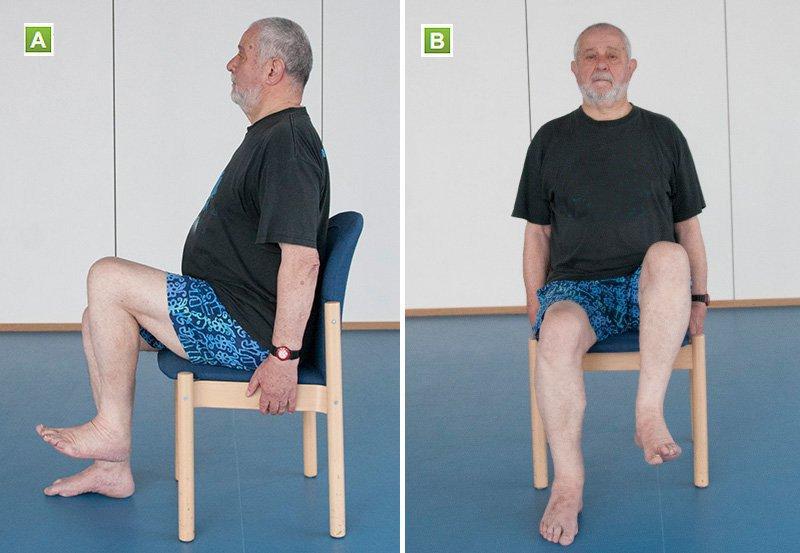
● strength exercises
● flexibility exercises

● balance exercises
You can do activities that strengthen your muscles on the same or different days as your aerobic activity – whatever's best for you. Muscle-strengthening exercises are not always an aerobic activity, so you'll need to do them in addition to your 150 minutes of aerobic activity
Physical activity guidelines for older adults NHS
BBC Skillswise - Maths for adults →
What is this tool?
This webpage offers a range of free video content and worksheets designed to help adult learners improve their numeracy skills.

Topics covered:
● Numbers
● Calculation
● Percent and fractions

● Measuring
● Shapes
● Graphs

Click here to access this resource →
National Numeracy - National Numeracy Challenge →
National Numeracy are an independent charity that aim to improve maths skills across the nation. They also work in partnership with Health Education England (HEE) to support and encourage the healthcare workforce to improve their numeracy skills.



What is this tool?
The National Numeracy Challenge is a free online tool that is designed to help you improve your maths skills through a range of resources, including:
● Numeracy skills checks
● Learning resources

● Interactive content including videos, quizzes and tips

● Technology that adapts to your own individual learning level, with 300+ questions
Click here to access this resource →
To read the f ll ne sletter follo the link
MILE Newsletter
Digital Social Care - Events and trainin
Completing the DSPT for the first time
Date: Tuesday 19 September 2023 - Location: Online / Zoom webinar
Read more
Big Data LDN
Date: Thursday 21 September 2023 - Location: Olympia London
Read more
Resilience & cyber4Good
Date: Friday 22 September 2023 - Location: Virtual

Read more
Review and Republish your DSPT
Date: Tuesday 26 September 2023 - Location: Online
Read more
Cyber attacks on social care: a case of ‘when, not if’

Date: Tuesday 17 October 2023 - Location: Online
Read more
The Information Governance in Health and Care Conference
Date: Tuesday 7 November 2023 - Location: Online
Read more
Digital Social Care offer a range of training sessions and events. Click the link to access full details of their Events: Events | Digital Social Care


Digital Social Care - Events and trainin


The Digital Skills Training Database provides information about of digital skills training courses and has been mapped themes of the Digital Skills Framework
The database includes a description of each course, the target audience, length of time to complete the training and cost. This is the start of work to bring together digital skills training relevant to social care in one place and more training will be added in the future.
If you have suggestions for additional training courses, please contact us.
The database includes training courses offered by both Skills for Care endorsed and non-endorsed training providers. You can read more about endorsement on the Skills for Care website Please note, Digital Social Care does not provide endorsement for training included in the database for more information please see our disclaimer

Training - Using Digital Technology in a Person-Centred Way
Training - Technical Skills for Using Digital Technology
Training - Communicating Through Technology

Training - Being Safe and Secure Online

Training - Ethical Use of Data and Technology
Training - Using and Managing Data to Deliver Care
Training - Digital Learning, Self-Development and Wellbeing
Digital Skills Training Database - Digital Social Care
Contacts
Nada Wakeford nada@westsussexpartnersincare.org
Brian Roberts brian@sussexdigitalteam.co.uk
Sarah McNally sarah@sussexdigitalteam.co.uk
Claire Badzek claire@sussexdigitalteam.co.uk
Or phone us on 07860 630063
www.sussexdigitalteam.co.uk







































































